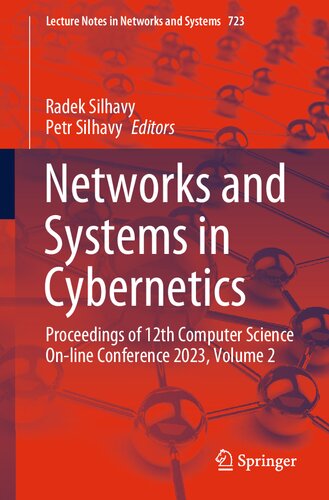

Most ebook files are in PDF format, so you can easily read them using various software such as Foxit Reader or directly on the Google Chrome browser.
Some ebook files are released by publishers in other formats such as .awz, .mobi, .epub, .fb2, etc. You may need to install specific software to read these formats on mobile/PC, such as Calibre.
Please read the tutorial at this link: https://ebookbell.com/faq
We offer FREE conversion to the popular formats you request; however, this may take some time. Therefore, right after payment, please email us, and we will try to provide the service as quickly as possible.
For some exceptional file formats or broken links (if any), please refrain from opening any disputes. Instead, email us first, and we will try to assist within a maximum of 6 hours.
EbookBell Team

0.0
0 reviewsThe Networks and Systems in Cybernetics section continues to be a highly relevant and rapidly evolving area of research, encompassing modern advancements in informatics and cybernetics within network and system contexts. This field is at the forefront of developing cutting-edge technologies that can tackle complex challenges and improve various aspects of our lives. The latest research in this field is featured in this book, which provides a comprehensive overview of recent methods, algorithms, and designs. The book comprises the refereed proceedings of the Cybernetics Perspectives in Systems session of the 12th Computer Science Online Conference 2023 (CSOC 2023), which was held online in April 2023.
The book offers a unique opportunity to explore the latest advances in cybernetics and informatics and their applications in a range of domains. It brings together experts from various disciplines to share their insights and collaborate on research that can shape the future of our world.
One of the key themes of this section is the application of cybernetics in intelligent systems. This area has significant potential to revolutionize a range of industries. Researchers are exploring how cybernetic principles can be used to create intelligent systems that can learn, adapt, and optimize their performance over time.